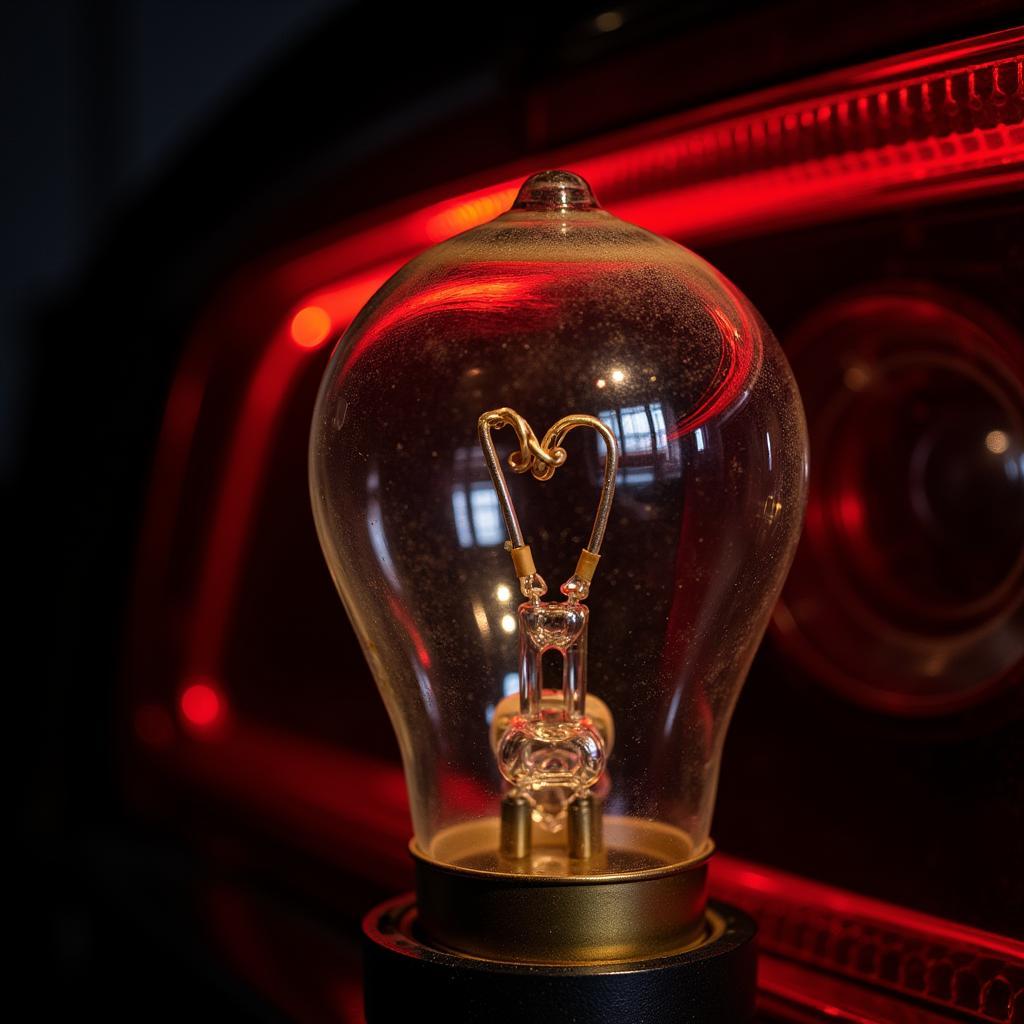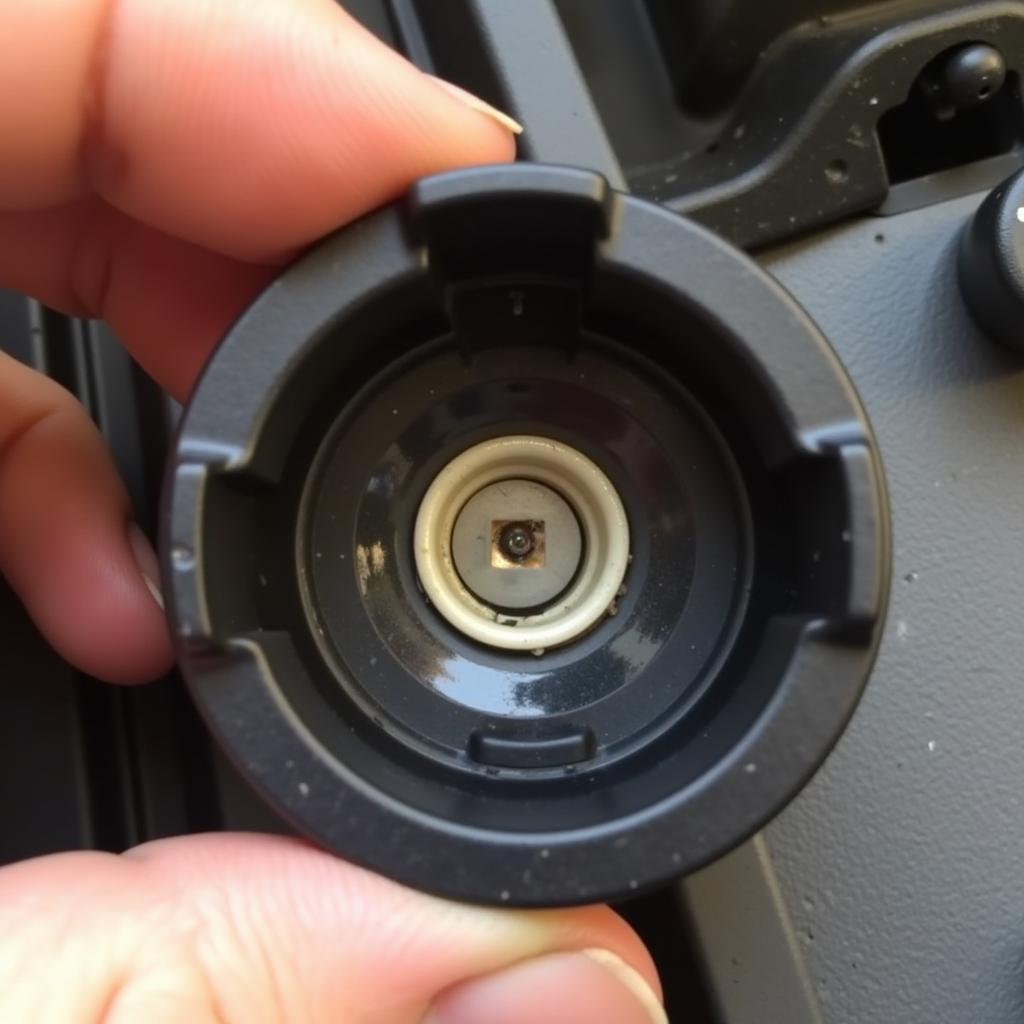The parking brake warning light on your Chevrolet Captiva is designed to illuminate when the parking brake is engaged. However, if you notice the warning light staying on even when the parking brake is released, or if it flickers intermittently, this indicates an underlying issue that needs to be addressed.
Common Causes of a Parking Brake Warning Light
Several factors can trigger the parking brake warning light on your Chevrolet Captiva. These range from simple issues like a faulty switch to more complex problems within the braking system. Here’s a closer look at some of the most common culprits:
-
Worn Brake Pads: Over time, your Captiva’s brake pads naturally wear down. If they become excessively thin, a sensor within the braking system can trigger the parking brake warning light. This serves as a reminder to have your brake pads inspected and replaced as needed.
-
Low Brake Fluid: Brake fluid is essential for transmitting the force you apply to the brake pedal to the actual brakes. If the fluid level is low due to a leak or other reasons, the parking brake warning light might illuminate to alert you of this potentially dangerous situation.
-
Faulty Parking Brake Switch: The parking brake switch is responsible for detecting whether the parking brake lever is engaged or released. A malfunctioning switch can send incorrect signals, causing the warning light to stay on even when the parking brake is disengaged.
-
Parking Brake Cable Issues: Your Captiva’s parking brake system relies on cables to engage the rear brakes. Over time, these cables can become stretched, corroded, or damaged. This can prevent the parking brake from fully disengaging, leading to a persistently illuminated warning light.
-
ABS (Anti-lock Braking System) Problems: In some cases, issues within the ABS system, such as a faulty wheel speed sensor, can also trigger the parking brake warning light. The ABS system and the parking brake system share some components, so a problem in one can sometimes affect the other.
Troubleshooting the Parking Brake Warning Light
Before you visit a mechanic, you can perform some basic troubleshooting steps to identify the potential cause of the warning light:
-
Check the Parking Brake Lever: Ensure the parking brake lever is fully released. Sometimes, the lever might seem disengaged, but a slight obstruction or misalignment can prevent it from returning to its resting position, keeping the warning light on.
-
Inspect Brake Fluid Level: Locate the brake fluid reservoir under the hood of your Captiva. Check the fluid level, ensuring it’s within the marked minimum and maximum lines. If the fluid is low, there might be a leak in the braking system, requiring immediate attention from a qualified mechanic.
-
Listen for Unusual Noises: When driving at low speeds, listen carefully for any unusual noises like scraping or grinding coming from the rear wheels. These sounds, along with the illuminated parking brake light, can indicate an issue with the parking brake cables or the brake shoes within the rear brake drums.
When to Seek Professional Help
If the parking brake warning light persists after performing these initial checks, it’s crucial to seek professional assistance from a qualified mechanic specializing in Chevrolet vehicles. They have the expertise and diagnostic tools to accurately pinpoint the root cause of the problem.
“Ignoring a persistent parking brake warning light can lead to more extensive and costly repairs down the line. It’s always best to err on the side of caution and have your vehicle inspected by a professional at the first sign of trouble,” advises Jake Miller, a seasoned automotive technician with over 15 years of experience specializing in Chevrolet and GM vehicles.
Preventing Future Issues
Regular maintenance is key to preventing parking brake warning light issues and ensuring the overall health of your Chevrolet Captiva’s braking system:
-
Adhere to Brake Pad Replacement Schedule: Consult your Captiva’s owner’s manual for the recommended brake pad replacement intervals. Regularly replacing worn brake pads not only prevents unnecessary warning lights but also ensures optimal braking performance and safety.
-
Inspect Parking Brake Cables: During regular maintenance checks, have a mechanic inspect the parking brake cables for signs of wear, corrosion, or damage. Addressing these issues proactively can prevent more serious problems down the road.
-
Flush Brake Fluid Regularly: Brake fluid can absorb moisture over time, reducing its effectiveness. It’s generally recommended to have your brake fluid flushed and replaced every 2-3 years or as recommended by your vehicle’s manufacturer.
Conclusion
A glowing parking brake warning light on your Chevrolet Captiva should never be ignored. By understanding the common causes, performing basic troubleshooting steps, and seeking timely professional help when needed, you can effectively address the issue, ensure the proper functioning of your vehicle’s braking system, and maintain safe driving conditions.


